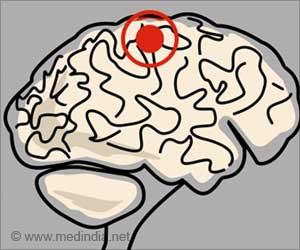Researchers discovered that asthma causes the T cells to behave in a way that induces lung inflammation but prevents the growth of brain tumors.

‘Reprogramming T cells in brain tumor patients to act more like T cells in asthma patients could be a new approach to treating brain tumors.’





“Of course, we’re not going to start inducing asthma in anyone; asthma can be a lethal disease. But what if we could trick the T cells into thinking they’re asthma T cells when they enter the brain, so they no longer support brain tumor formation and growth?”, said senior author David H. Gutmann, MD, PhD, the Donald O. Schnuck Family Professor of neurology.The idea that people with inflammatory diseases, such as asthma or eczema, are less prone to developing brain tumors was first proposed more than 15 years ago, based on epidemiologic observations.
The reason why the two very different kinds of diseases would be linked was unknown, and some scientists questioned whether the association was real.
Recent studies have started to reveal the crucial role that immune cells play in the development of brain tumors made to wonder whether immune cells could account for the association between asthma and brain tumors.
To know this association, researchers studied genetically modified mice carrying genetic changes related to a brain tumor.
Advertisement
Further experiments revealed that inducing asthma in tumor-prone mice changes the behavior of their T cells. After the mice developed asthma, their T cells began secreting a protein called decorin.
Advertisement
The findings suggest that decorin blocking microglial activation may be a potentially useful therapeutic approach for brain tumors.
The next step is to investigate the role of eczema and other early-childhood infections because they both involve T cells.
As we understand this communication between T cells and the cells that promote brain tumors better, more opportunities to develop clever therapeutics to intervene will be in the process.
Source-Medindia















